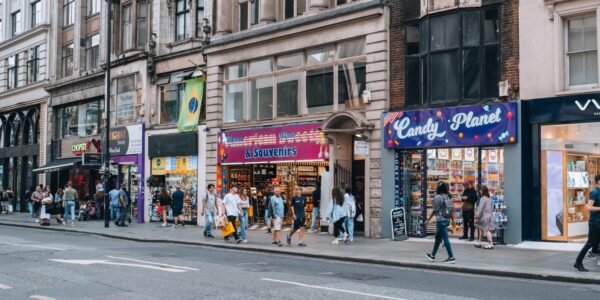

The UN Security Council Sanctions Committee on North Korea first convened in 2006, prompted by North Korea’s claim in October of that year that it had successfully conducted a nuclear test. The resolution establishing the committee — resolution 1718 — also progressively imposed several sanctions on the country with the goal of stymying progress on its ballistic weapons and nuclear program.
Despite the mounting sanctions measures against, it would appear that North Korea continues to be successful in efforts to evade these sanctions. This has enabled the country to advance its nuclear program. That’s the main finding of a March 2020 report published by a panel of eight UN-appointed independent experts who advise the UN Security Council.
The 266-page report is detailed: the first 70 pages meticulously summarize North Korea’s sanctions evasion activity, and the remaining almost 200 pages offer supporting documentation. Finally, the panel lays out 39 recommendations for additional actions the UN and its member states can take to crack down on such activity.
As a result, this report provides financial institutions (FIs) with valuable information about current vulnerabilities that are open to exploitation as well as possible future enforcement actions.
The 2009 UN resolution broadening the arms embargo against North Korea and the subsequent expansion in 2016 to ban North Korean export of coal, iron and other extractives forced North Korea to develop advanced tactics to evade maritime controls. Chief among those are, according to the report, illicit ship-to-ship (STS) transfers and “direct deliveries by foreign-flagged ships.” To avoid detection and conceal the vessels’ identities, these transfers and deliveries are often done at night, and many ships switch off their automatic identification system (AIS), operate without a valid IMO number and use numerous other methods of disguise.
Practices like these have been the primary enabler of North Korea’s illegal export of coal — a major revenue source for the country’s ballistic missile and nuclear arms program. An unspecified UN member state estimated that North Korea exported approximately $370 million worth of coal (3.7 million tons) between January and August of last year. It appears North Korea remains undeterred by the UN’s coal ban, which passed in 2017.
The country also defies UN limits on petroleum imports, which was capped at 500,000 barrels in 2019. Citing evidence provided by the US, the report states that the total amount of petroleum imported from January 1 to October 31 exceeded that limit “many times over” — anywhere from three to eight times the cap.
Finally, illicit shipping practices have facilitated the smuggling of luxury items — which have been banned since 2006 — such as high-end cars, alcohol and luxury watches.
As a result of its findings, the Panel of Experts has recommended 12 new vessels for designation by the UN:
It has also reiterated its previous recommendation to designate two North Korean vessels:
While these latter two have also been listed in a March 2019 OFAC Sanctions Advisory, none of these have so far been designated by the UNSC Sanctions Committee. There is also no guarantee that these recommendations will be adopted by the Sanctions Committee, neither in full nor in a timely manner, as different considerations might influence such a decision.
For example, as a tool of foreign policy, sanctions are not equally embraced and applied globally. While there may be overlaps (e.g., those designated by the UN may also be designated by the EU or US), there are also contradictions when foreign policy interests clash — as illustrated by the EU’s blocking regulation banning companies from complying with US secondary sanctions.
Therefore, until a formal designation happens, sanctions and watchlist data providers will rightly refrain from listing the vessels alongside formally sanctioned vessels.
Nevertheless, to accurately assess risk, FIs must consider several factors when screening for sanctioned individuals, from regulatory requirements to advisory papers and reports published by the sanctions-issuing authority. The fact that these vessels have been called out by the UN Panel of Experts signals that they represent a high level of risk. Any financial institution (FI) that decides to engage in business involving these vessels should proceed with caution and take appropriate due diligence measures.
Further, they should be aware that these vessels could be the subject of future enforcement actions — first by the UN, followed by some or all of its member states, or by the member states’ autonomous sanctions regimes.
Given the role FIs play in international trade, they must take extra measures to ensure they are not facilitating illicit maritime shipments. Services related to maritime operations, as the Association of Certified Anti-Money Laundering Specialists (ACAMS) suggests, must be examined with a greater level of scrutiny. In practice, this could mean performing enhanced due diligence on customers engaged in maritime activities or transactions that involve the maritime sector, especially if they occur in high-risk jurisdictions.
In addition, the Association of Certified Anti-Money Laundering Specialists (ACAMS) asserts that “FIs should exercise caution when issuing letters of credit to trading and shipping companies that might end up facilitating illicit vessel-to-vessel transfers. Similarly, insurance companies should be careful about insuring and re-insuring vessels that could end up carrying illicit goods to and from North Korea.”
Finally, businesses involved with international trade should look for sanctions and watchlist data providers that not only cover the most widely-used lists but also those that work to provide complementary material. For instance, the ability to screen against all current and previous recommendations on vessel designations issued by the Panel of Experts.
Originally published 24 June 2020, updated 17 November 2021
Disclaimer: This is for general information only. The information presented does not constitute legal advice. ComplyAdvantage accepts no responsibility for any information contained herein and disclaims and excludes any liability in respect of the contents or for action taken based on this information.
Copyright © 2023 IVXS UK Limited (trading as ComplyAdvantage).